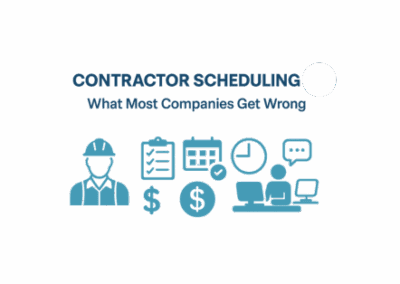Healthcare has been one of the busiest and most talked about sectors over the past 3 years due to the pandemic. With workers being overworked and not paid sufficiently, there has been nonstop news over this area and rightly so. Staffing shortages really cam into effect during the pandemic and the need for qualified workers grew to a state of emergency. Although the pandemic has calmed down and countries are returning to normal life, there still exists an ongoing need for healthcare workers.
In this blog we will discuss the ways you can handle the ongoing healthcare staff shortages for your establishment.

Current Issues
According to a new survey of hospital leaders from Advis consulting, more than a third of nurses recently surveyed by staffing firm Incredible Health said they plan to leave their current jobs by the end of this year, citing burnout and high-stress work environments. Higher pay elsewhere is the top reason for taking another position, the poll found.
More than 90% of the 75 health system leaders responding to Advis’ survey in March said they’ve increased compensation to recruit and retain staff, while 81% said they are still filling gaps with agency labor. At the same time, 56% of respondents said they are partnering with nursing schools as concerns around the pipelines for future staff grow.
How to handle the ongoing healthcare staff shortages
Prioritize your assignments
Examine your assignments and categorize nursing activities as high, medium, or low priority. Start with the high-priority activities. These include critical assessments and interventions, such as tracheal suctioning. Next, tackle medium-priority duties, such as teaching patients. Many low-priority activities can be delegated to unlicensed assistive personnel (UAPs), family members, or volunteers.
Organize your workload
After receiving report, determine the care your patients will need. Gather equipment and supplies before entering a patient’s room. Give support personnel a list of any missing items and ask that they get them right away.
Be a team player
Make a rule that no one can sit until everyone can sit. If you finish your work before others, pitch in. Teamwork creates bonds between co-workers, makes difficult situations tolerable, and enhances patient safety.
Recruit additional talent
Engage other personnel, not just nurses, to distribute the workload more evenly. The unit clerk, for example, can help you communicate with others.

Communicate effectively
Communicate clearly so that everyone knows the plan for surviving the staff shortage. Safeguard the feelings and dignity of all team members. Assess your own communication style: Do you ever speak in a demeaning or condescending way when you’re harried? Supporting each other and being kind smooths the way for everyone.
Inform and involve nursing administration
Inform your nurse-manager when staffing is inadequate. He may be able to call in staff, offer overtime or incentive pay, reallocate staff, or employ staff from an agency. He may also help fend off time-consuming special requests.
Encourage family participation
When family or significant others are visiting, ask them in a friendly way if they want to help, without mentioning the staff shortage. If they’re amenable, offer suggestions such as assisting with meals. Be sure to thank them.
Take care of yourself
During each shift, try to take a break from the caregiver role, even if only briefly. If you can’t leave the unit, take a moment for yourself in the break room. To stave off burnout, eat a balanced diet and get enough rest and exercise.
Maintain a positive attitude
Attitude is everything. If you go into a challenging situation with a positive, can-do attitude, you can achieve great results. In contrast, a negative outlook can bring down the morale and performance of the entire team. Positive self-talk is an important first step. Tell yourself and then the team that you can survive and even thrive in challenging situations. Reframe the staffing shortage to generate camaraderie and a sense of mastery over apparent obstacles. In time, positive thinking and creative problem solving will become habits for the entire staff.
Long-Term Staffing Issues
Due to there being estimates that the healthcare staff shortages may continue into the next decade, employers need to develop long-term strategies to improve both recruitment and retention. Offering benefits like student loan repayment, referral bonuses, and subsidized housing are some options for attracting new applicants and building a strong pipeline of new staff.
Retaining employees may require investments in staff coaching and mentoring programs or identifying approaches that give staff more control over their schedules. The increasing adoption of telemedicine has created new opportunities for some healthcare workers to choose part-time schedules or more flexible hours or giving individuals the ability to work from anywhere.
New technologies are also enabling a more flexible staffing approach. For example, several mobile applications take an Uber-like approach to staffing, finding eligible healthcare workers and connecting them to healthcare employers with vacancies.




